If you are fanatical about Porsche and you don't have an altar dedicated to Hans Mezger in your garage, it's because you're not that fanatical about Porsche. That said, it's very likely that when you've finished reading this article, you'll feel the need to do so to reaffirm your faith — sorry, I didn't want to question it.
In my particular case, despite not being fanatical about any brand, I confess that I also have my own “engine gods”, such as Felix Wankel, Giotto Bizzarrini, Aurelio Lampredi and Ernest Henry, just to mention a few. The list goes on, but… there will be plenty of opportunities to write about them all here at Ledger Automobile.
This article will be about Hans Mezger, considered by many to be the best engine designer in history.
Who is Hans Mezger?
Hans Mezger is just the father of flat-six engines, and of some of the most important engines in Porsche history. For over half a century — yes, that's right, over 50 years! — Porsches were produced with engines developed by this German engineer (born November 18, 1929).
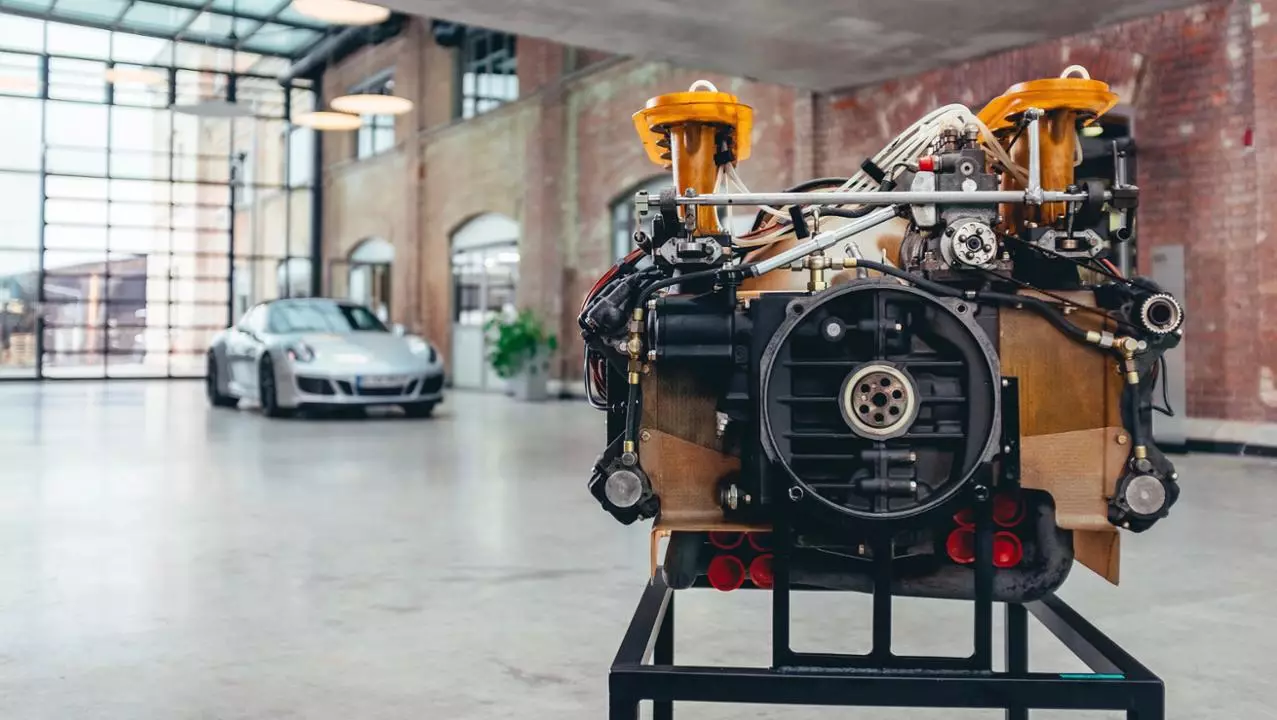
With a degree in mechanical engineering from the Technical University of Stuttgart in 1956, he went straight from the university banks to Porsche's ateliers, never to abandon it. His first project as a Porsche engineer was the development of the Fuhrmann cylinder head (Type 547), an opposing four-cylinder aluminum block that fitted the victorious Type 550/550 A.
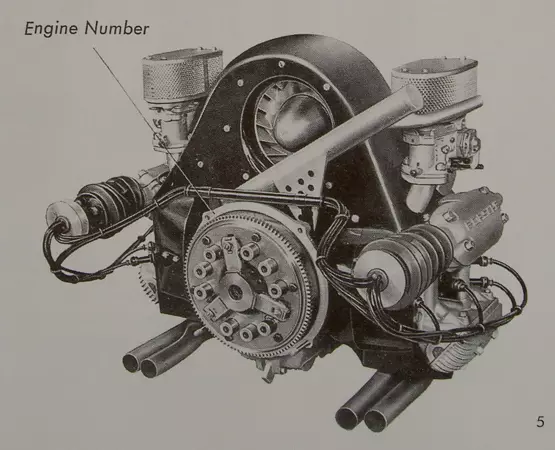
Just two years later (in 1959), Hans Mezger was already a highly regarded name within Porsche, having been invited to work on the Type 804 engine that powered the only Porsche Formula 1 that won with a chassis from the German brand. It was a 1.5 l opposite eight-cylinder engine capable of developing 180 hp at 9200 rpm.
This story has barely started...
By the end of the 1950s, there was no longer any doubt about the genius of Hans Mezger. A genius that earned him the opportunity to develop the engine for the first Porsche 911 in 1963.
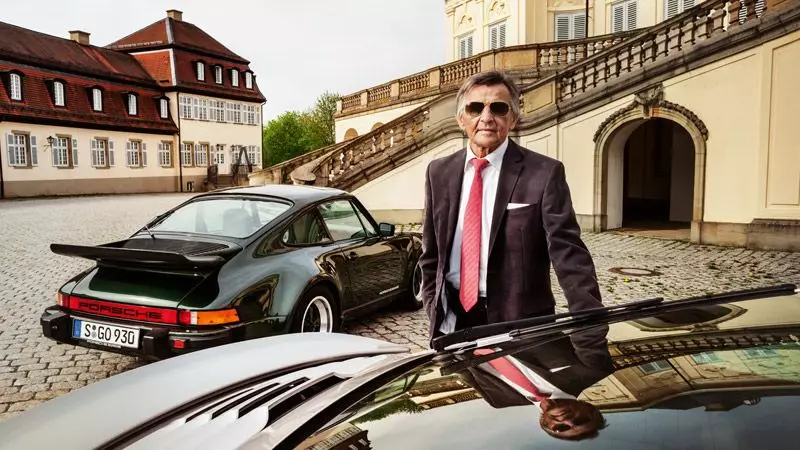
It was Hans Mezger who developed the Type 912 flat-12 engine for the unavoidable Porsche 917, the first Porsche to claim an overall victory at the 24 Hours of Le Mans (1971) . How fantastic was this engine? Immensely fantastic. In practice, these were two “glued” flat-sixes — hence the positioning of the fan in the center — and which in its most radical configuration allowed the Porsche 917/30 Can-Am to accelerate from 0-100 km/h in just 2, 3s, from 0-200 km/h in 5.3s and reach 390 km/h of top speed.
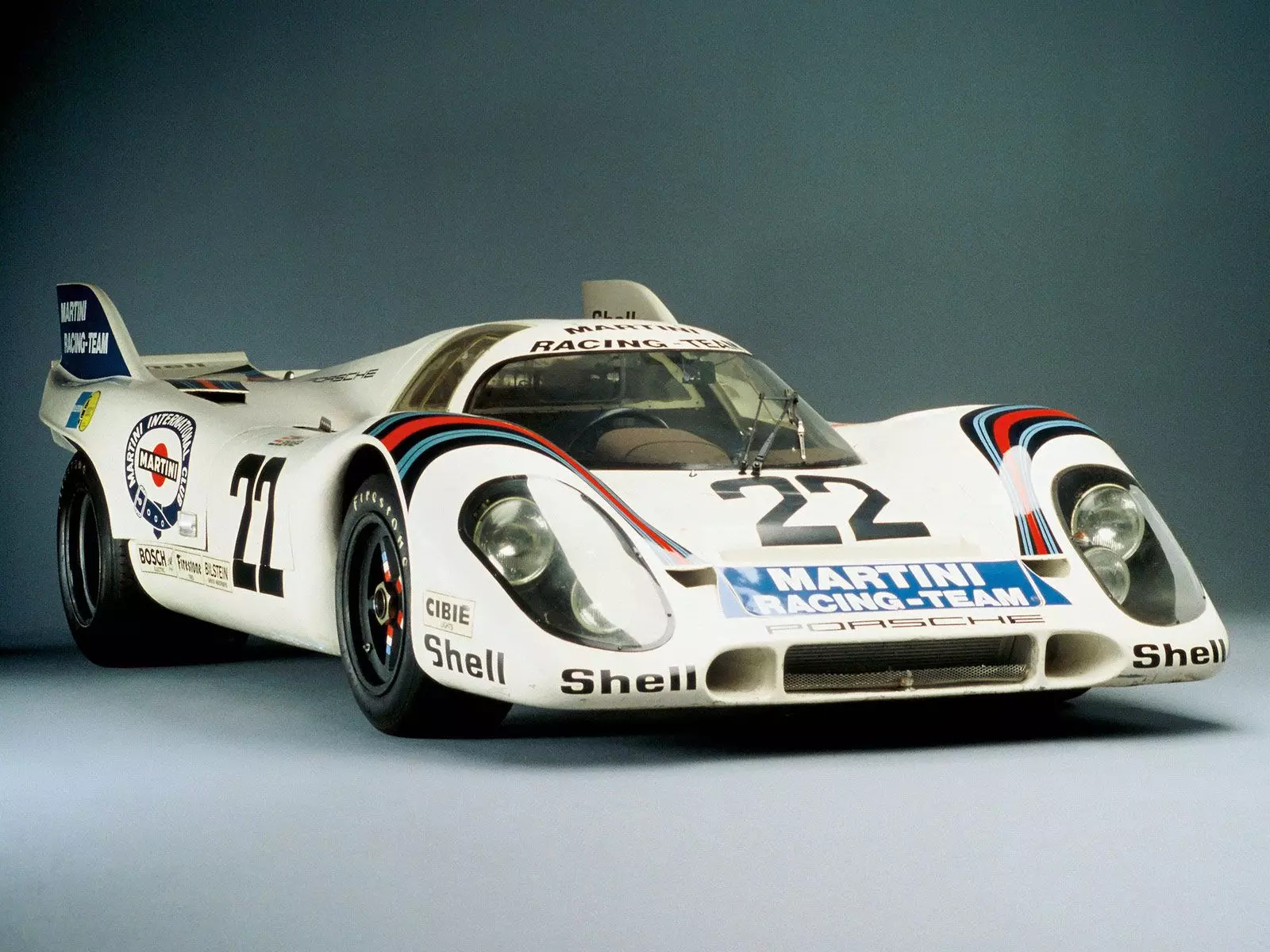
Enough of engines developed by Hans Mezger? Of course not. We are still in the 70s, by which time Hans Mezger was already known by the nickname Motoren-Papst — or in Portuguese “Papa dos Motores”.
Subscribe to our newsletter
His curriculum also includes the development of engines for models such as the Porsche 935 and 956/962 (in the gallery below). Swipe:
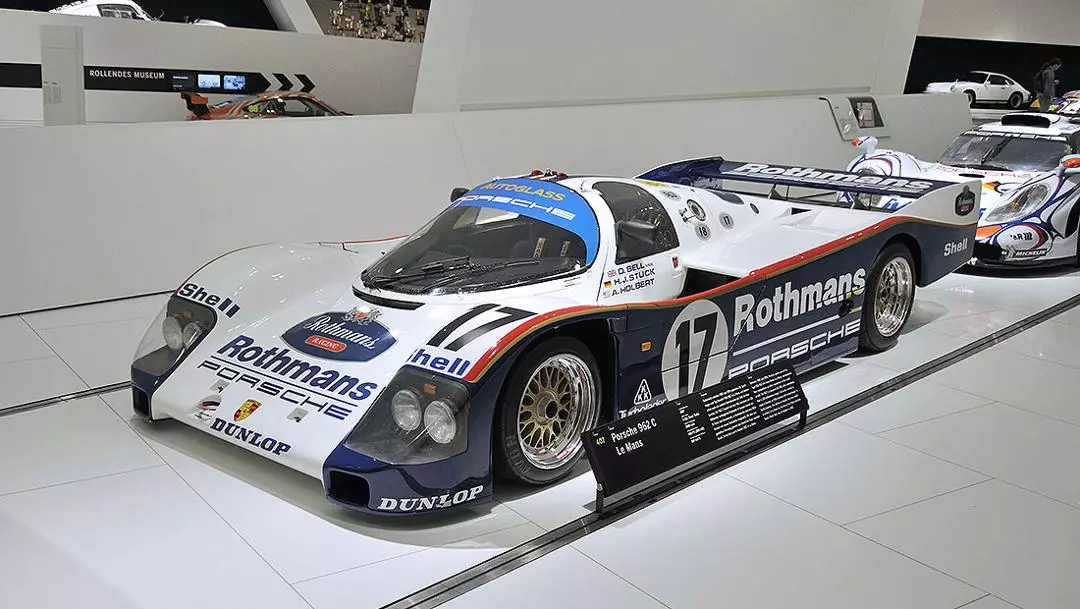
Porsche 962.
Let's put it this way: the 956/962 of Group C is the most successful car in the history of the 24 Hours of Le Mans, winning six consecutive races in the 1980s.
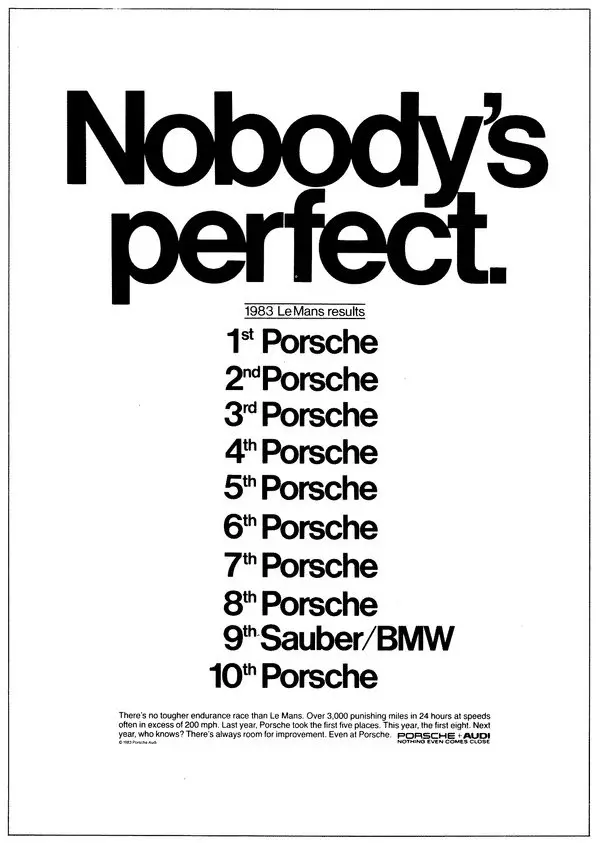
By this time Hans Mezger had already won practically everything there was to win. The Porsche 911 was a bestseller and Porsche's supremacy in every category in which it competed was undisputed.
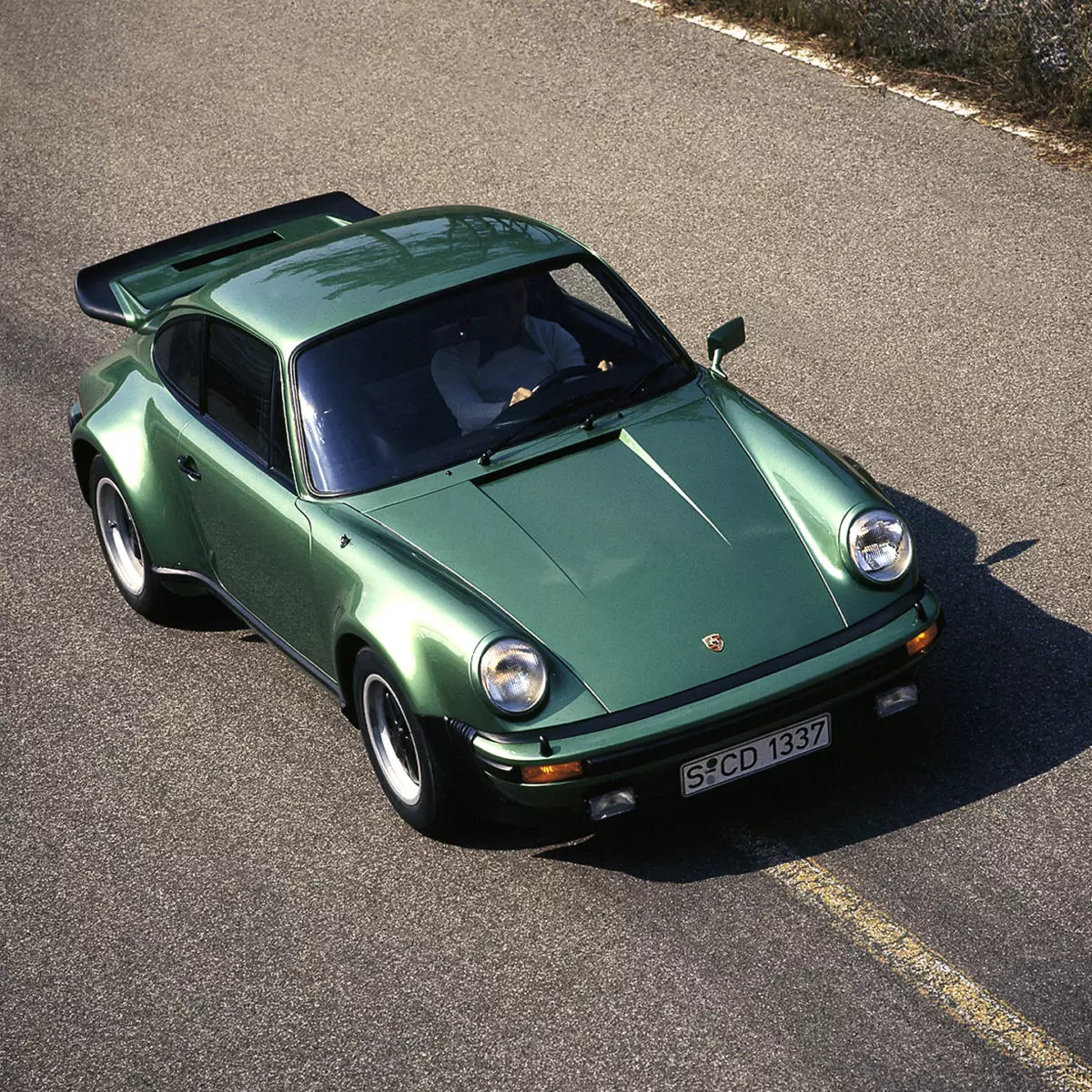
But there was something to be done. Despite Porsche's Formula 1 victory in the 1960s, with a signature engine and chassis, much had changed since the 1960s.
Could Hans Mezger manage to develop a winning engine for modern Formula 1?
The return to Formula 1 victories
Hans Mezger was involved in three Formula 1 programs, one of which was in the early 1960s as mentioned above. The third program was a monumental failure due to Footwork's budget constraints in 1991 — contrary to what you might think, Porsche has always had very limited resources.
It was in the second Formula 1 program that Hans Mezger experienced greater success in this sport. With its pockets full from TAG's sponsorship, Porsche teamed up with McLaren for the 1984 to 1987 seasons.
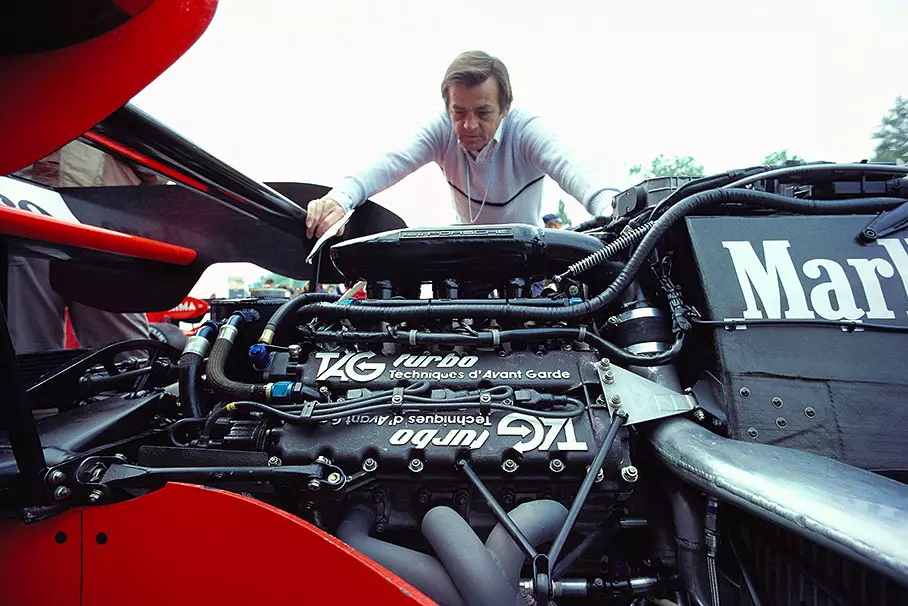
Hans Mezger with his creation.
Thus was born the TAG V6 project (code name TTE P01). It was a 1.5 engine of V6 architecture, with Turbo (at 4.0 bar of pressure), capable of developing 650 hp of power. In the qualifying specification the maximum power rose to 850 hp.
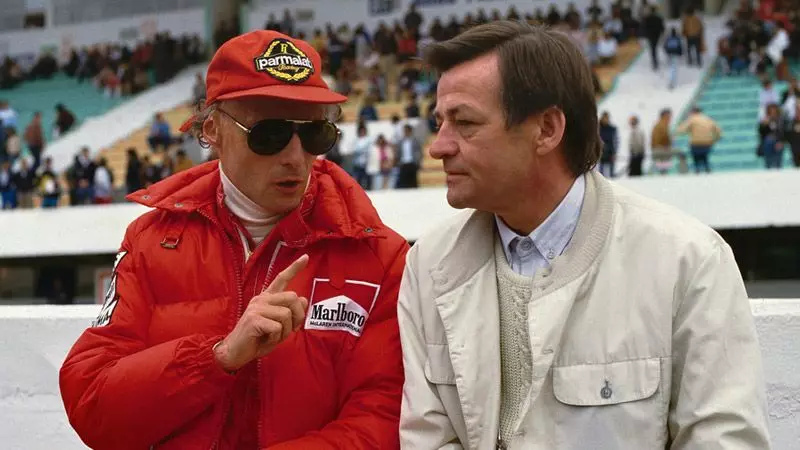
With this engine, McLaren achieved the most victorious period in its history, claiming two manufacturer's titles in 1984 and 1985, and three driver's titles in 1984, 1985 and 1986. The TAG V6 yielded 25 GP victories to McLaren between 1984 and 1987.
Hans Mezger's last term at Porsche
If you remember, Hans Mezger joined Porsche in 1956 and we are now in the 90s. The world overcame World War II, the automobile democratized, the Berlin Wall fell, mobile phones are here to stay, the Internet has invaded the computers.
Anyway, the world has changed but something has remained unchanged: Hans Mezger.
Naturally, to maintain his supremacy, Hans Mezger had to innovate. But even in this he remained equal to himself. Innovation and the search for mechanical perfection was always in his way of being.
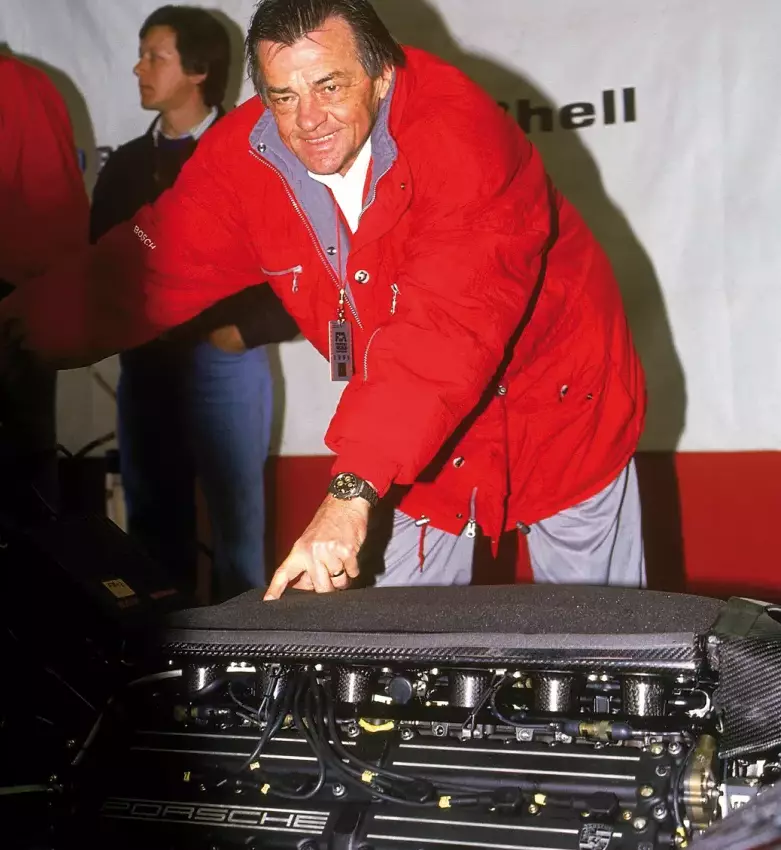
With hundreds of victories under his belt, in the four corners of the world and in the main disciplines of motor sport, this German engineer still found the strength for one last tango. That tango was the Porsche 911 GT1 that raced at Le Mans in the 90s.
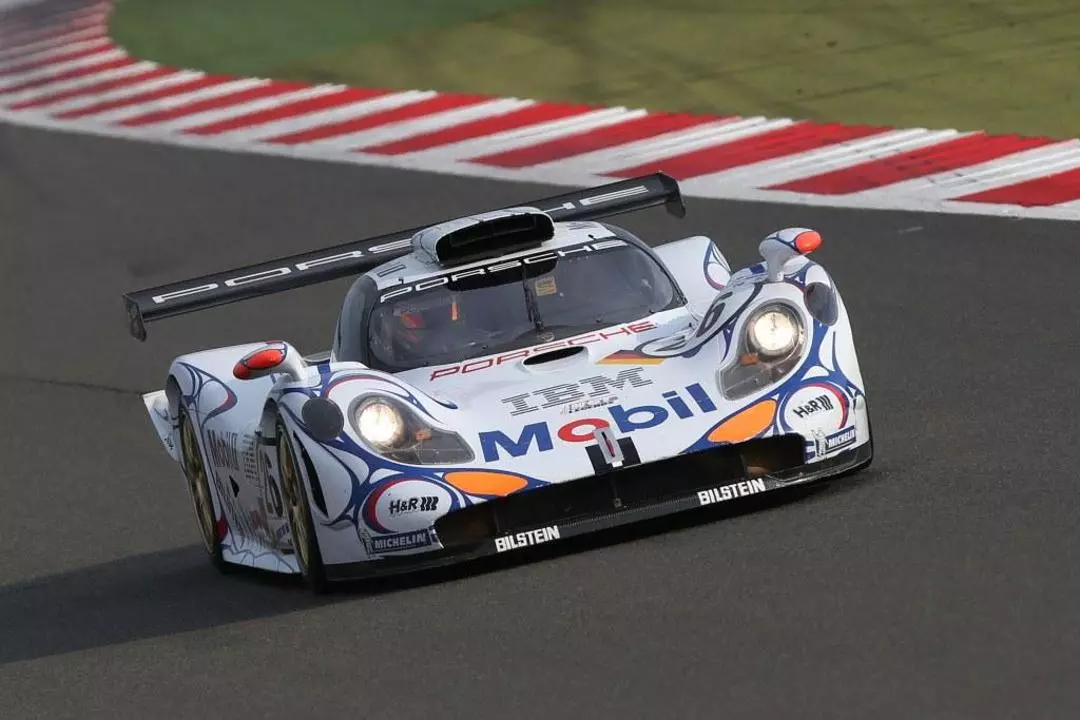
Hans Mezger left Porsche in 1994 but his legacy has lived on for nearly two more decades. All generations of the Porsche 911 GT3 and GT3 RS — with the exception of the 991 generation — were equipped with Mezger engines derived from the unit developed for the Porsche 911 GT1.
Characteristics? The intoxicating sound, the sporty yet powerful rev climb, the latest 3000 rpm, the power delivery and almost everything proof reliability have made the Porsche 911 GT3 RS what they are today. Machines revered by everything and everyone, kings and lords of the Nürburgring Nordscheleife.
In a small part — even so in a larger part than I have ever dared to dream — I can say that I have already felt, touched and explored some of the works of this engine genius. I had the privilege of driving all Porsche Rennsports (RS), some of which were signed by Hans Mezger.
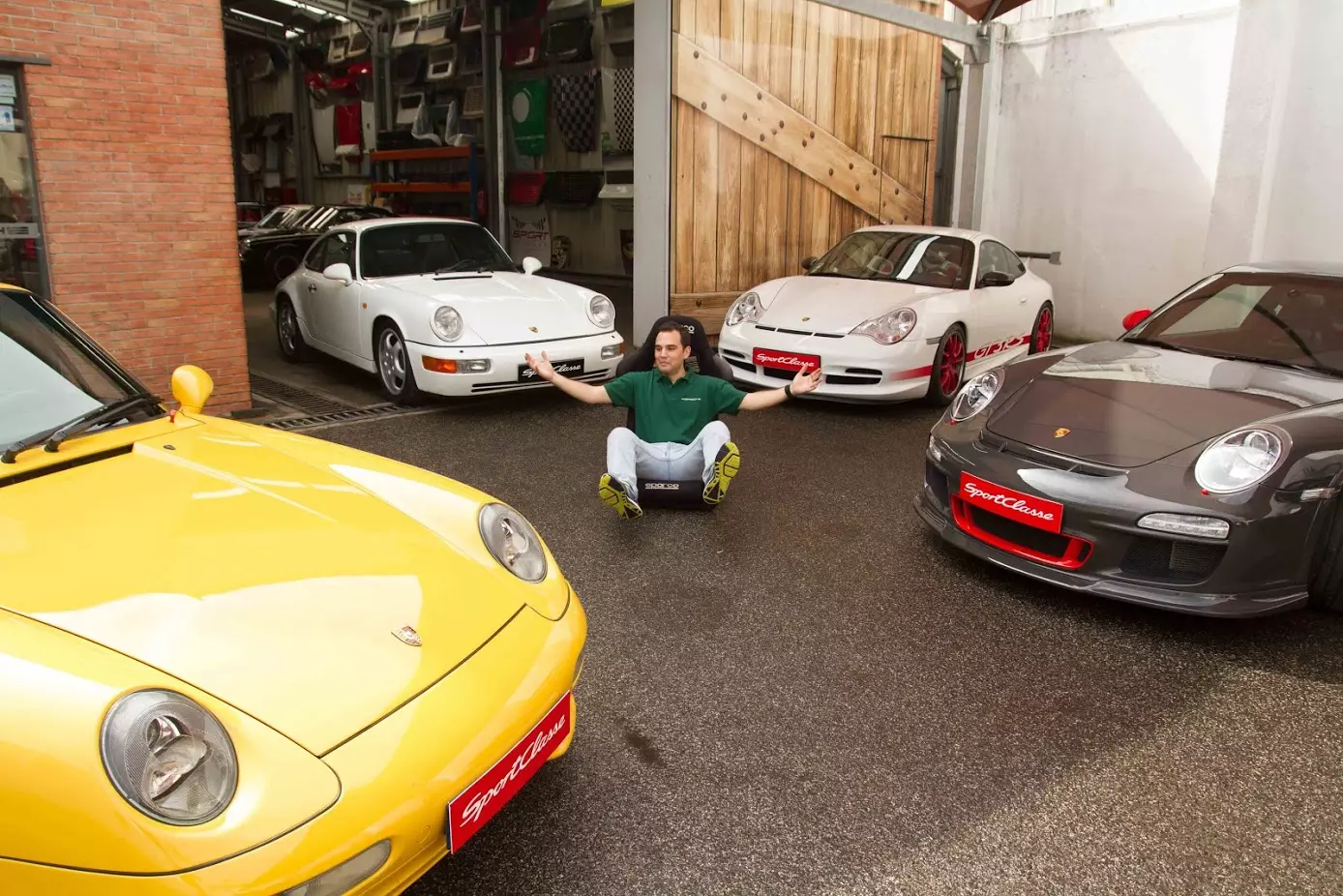
It is for all these reasons, and for a few more (which remain unwritten…), that I consider Hans Mezger the best engine designer in the history of the automobile.
He won on the tracks, won on the market and created some of the greatest icons in the automotive industry and motorsports; he talks about the Porsche 911 and the Porsche 917K but he could talk about so many others. Please feel free to disagree with me and to nominate what you think is the best engine designer in the history of the automobile industry. These were my two cents…
